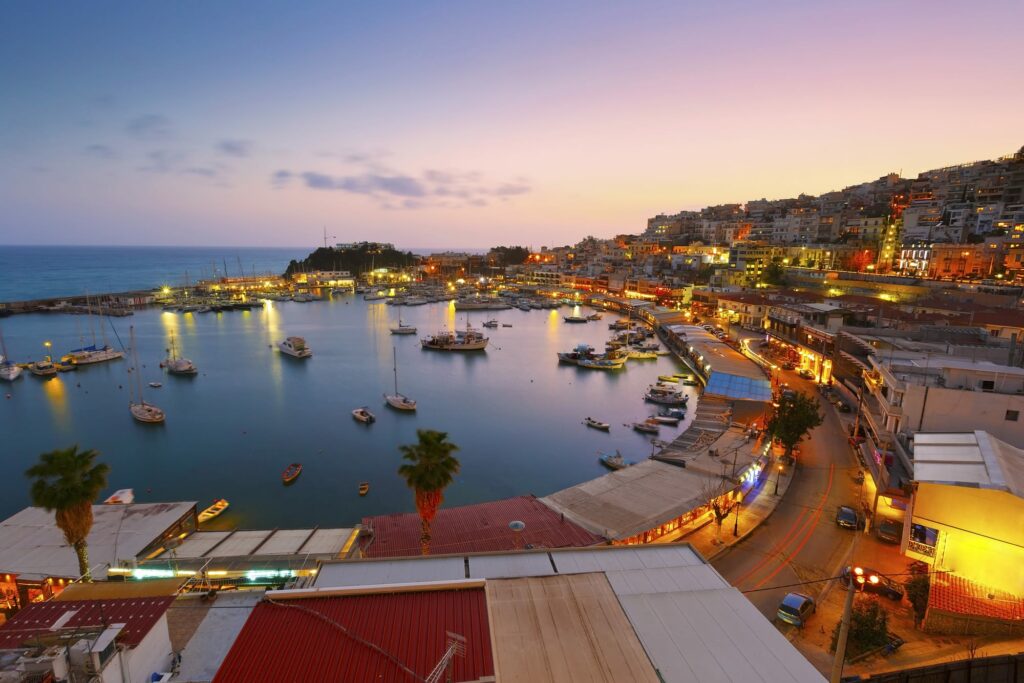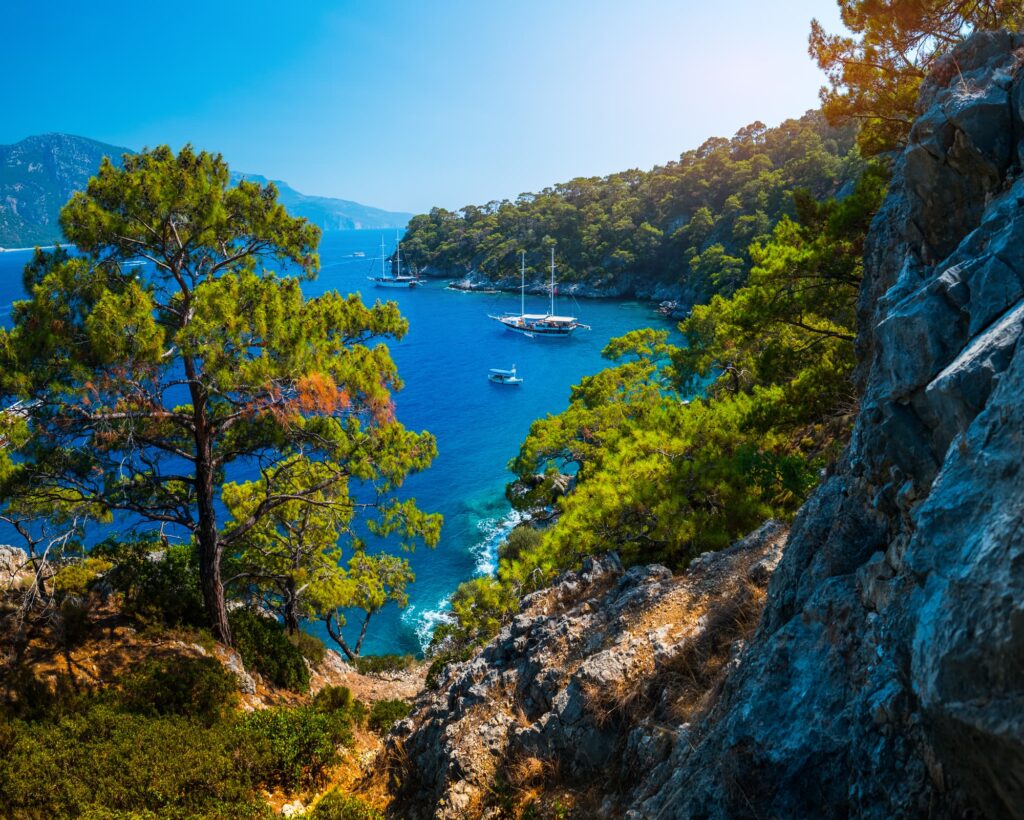It’s always hard to choose a sailing destination. Especially when it’s between so beautiful sailing countireto sails. Both have a lot to offer and sailing either one would be unforgettable experience for sure. We hope this text will help you decide in choosing Greece vs Turkey.
Greece vs Turkey
Greece
Sail in Greece and discover over 2000 islands, each with its own unique character. The islands make up 20% of the total area of Greece. This is an ideal yachting area with more than 15.000 kilometers, so there is plenty of adventure waiting for you if you decide on yacht charter in Greece. The climate is Mediterranean with mild moist winters and dry hot summers. Compared to Turkey, sailing conditions in Greece are slightly better. The winds are stronger than in Turkey, especially during late July and August.

Most of famous Greek monuments are located on shore. However, there is lots to be seen since the islands still feature lot’s of cultural and natural heritage. Patmos in particular is famous for the Cave of St John.
Turkey
Yacht charter in Turkey is perfect if you want a relaxed sailing experience especially early or late in the season. Then the winds are not as strong as in midsummer. Turkey is an ideal gulet charter destination being the homeland of that type of vessels.
To sail in Turkey means to cruise along the much indented Turkish coastline. Sailing in Turkey takes you back in time since the country is rich in archaeological sites, castles and temples. Especially the south-west coast, from Izmir via Kusadaşi, Bodrum, Marmaris, Fethiye and Kaş to Antalya, makes an ideal sailing ground.

Turkey is much greener than Greece, and the water is warmer. In springtime, the temperatures in Turkey are warmer than in Greece, where it’s still rather chilly at night. However, in midsummer, it gets quite hot in Turkey.


“Turkey is much greener than Greece”. This is incorrect. Greece is actually much greener on average than Turkey which you could have easily found out based on data. If data is nothing for you, Just look on the map for starters. Greece has 32% forest cover and Turkey 15%. Some of the most popular Greek islands to sail like the Cyclades are the most water deprived ones. Although virgin forested and very rugged islands are both very popular, it’s simply incorrect to say that Turkey is much greener. It’s exactly the opposite
Hello,
Thank you for your comment. You’re quite incorrect, though.
While your information on percentage of land covered by forests for Greece is almost correct, your source of information for percentage of land covered by forests in Turkey is absolutely incorrect. Study conducted in 2009 suggested that Greece had 28.43% of it’s land covered by forests and another study conducted in 2016 said that Greece has 31.7% of it’s land territory covered in forests. In square kilometers that’s 37,520 square kilometers in 2009 and 40,842 square kilometers in 2016. Greece is one of the rare world countries that has recorded ascending percentage of it’s forests in 21st century.
On the other hand there is Turkey. In 2009 Turkey had 27.6% of it’s land covered in forests and in 2016 the percentage recorded is 15.7%. The first number is from their official turistic pamphlet which we believe is biased information while the second number is from unbiased source. Mentioned 15.7% translated in square kilometers gives us the number of 118,174. Turkey, same as Greece, is one of those rare countires that records the ascending percentage in 21st century.
That leaves us with two numbrs which are relevant here. 40,842 square kilometers (Greece) vs. 118,174 square kilometers (Turkey). Although the percentage covered in forests in Greece is almost twice the number of land covered in forests in Turkey, the square kilometers of territories covered in forests confirms that Turkey, in fact, has almost 3 times more land covered in forests than Greece.
Of course, it is open for a discussion if a smaller country with greater percentage of land cover in forests is greener than larger country with smaller percentage of land covered in forests even though the latter has much more square kilometers of forests and even what the term ‘green’ means in this sense. However, I believe this is irrelevant here. I believe the most important thing is that both countries are recording the positive trend in forestation and seeing that the percentage of forests is growing is the most important thing we can take from this 🙂